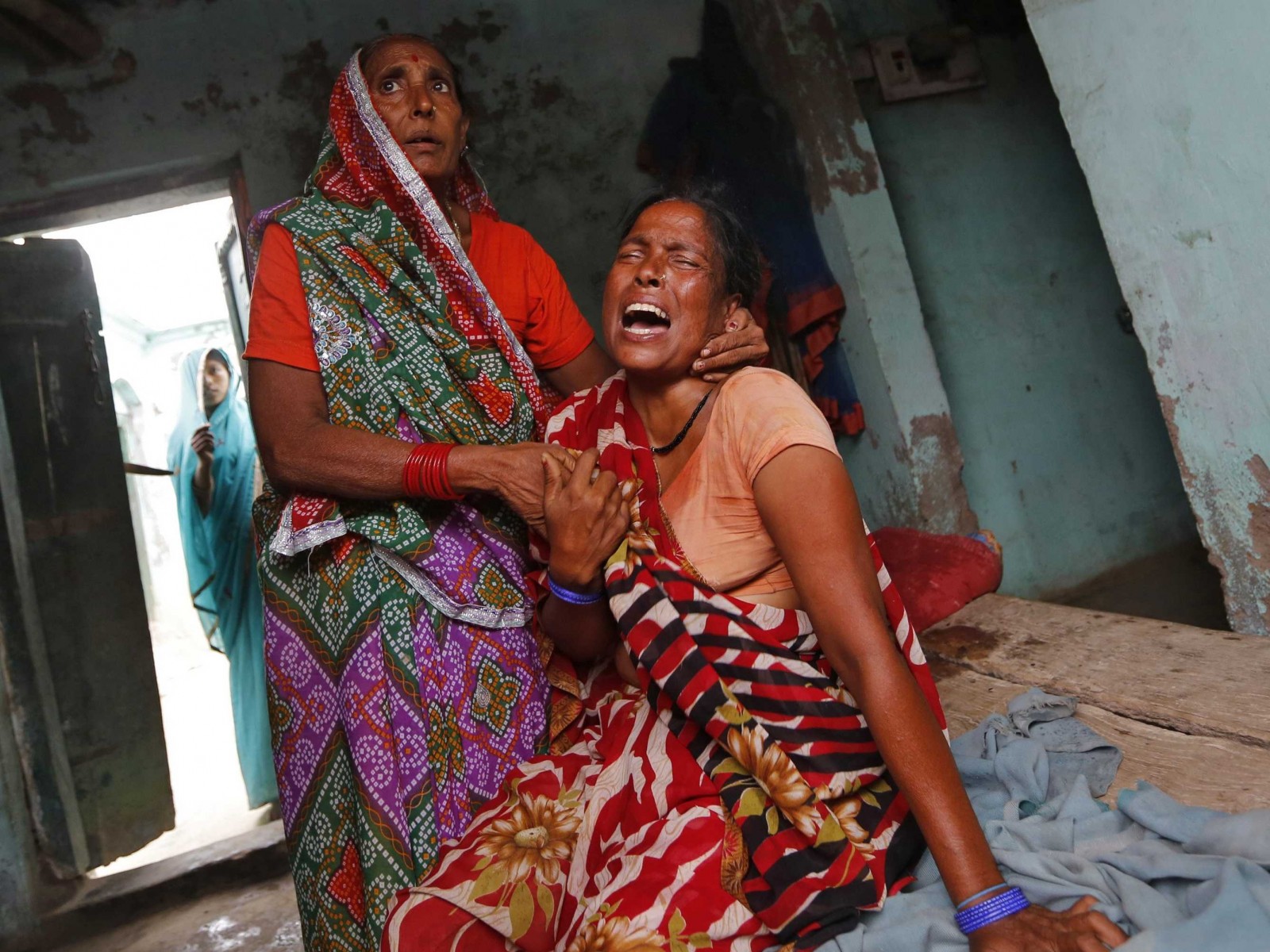
Dr. Amabarish Bose’s clinic in Kolkata, India, welcomes patients who can’t pay. “My mother worked as a cook to put me through primary school,” says Dr. Bose. “The only reason I went was the lunch served. Times then were so tough that sometimes that was the only full meal I got in the day.”
For many in India, the situation today has changed little since Dr. Bose's time. But for the 23 children of Gandaman Primary School in the village of Dharma Sati, in Bihar, the lunch served under India’s much discussed noon meal scheme recently proved to be the cause of their deaths: the food was cooked in oil polluted with an agricultural pesticide. Of the 47 children between the ages of four and 12 who were affected, 23 died while others remain critical condition.
The school’s cook tried to tell the principal that the oil didn’t appear normal, but no one heeded her warning. After the tragedy occurred, the Guardian reported that the oil had five times the pesticide concentration level normally used on crops.
India’s noon meal scheme is among the largest food programs in the world, reaching 120 million children across the country in 1.2 million schools. But the institutions and organizations running it are rife with corruption, putting some of the country’s most vulnerable populations under grave risk.
Run previously under the Ministry of Human Resource Development, the food program was formerly carried out by private contractors that the government deemed suitable to provide the necessary supplies. But after a 2011 investigation revealed that spurious and substandard food products were being used, the system became decentralized and village self-help groups were made responsible for providing the necessary products.
Today, the central government provides the rice that usually forms the bulk of the meal, while the state government provides other ingredients along with salaries for the cooks and other personnel involved.
While the scheme might be reaching huge audiences, the meals provided are often inedible. The staple vegetables and lentils are generally a watery mess that children find hard to scoop into their mouths. They are cooked in unhygienic surroundings and are usually unsupervised. The menu can be unvarying and children often don’t eat simply because the food is unappetizing. As Kamalavati, a shy nine year old, who hopes to be a doctor one day, said, “Our books tell us to eat vegetables. At school, we are served only potatoes and rice.”
While the government has clear guidelines to ensure the safe preparation and handling of food, poor infrastructure makes matters tough. Government aided schools, especially in rural areas, often don’t have enough classrooms so store rooms aren’t a priority.
At one school in West Bengal, a huge rat ran past as I pushed open the rickety door of the kitchen. Rice bags lay open with grains spilling out from the huge tears on the side. The cook stepped over a pile of yellow dal (lentil) to take some masalas from the shelf. “The children live in worse conditions in their homes,” she said placidly. “They will digest iron if necessary.”
Stark dishonesty marks the sector. In January 2006, police in Delhi caught an NGO siphoning off rice meant for these meals, in a scandalinvolving other government officials. The residents of Pembong village in 2006 had complained that they hadn’t been served food in the last 18 months. A Times of India report had highlighted that the Government Model Primary School, Jakkur, in Yelahanka, was stealing food by showing fake attendance numbers. The whistleblower was a primary school teacher who couldn’t bear to allow the situation to continue any longer.
The media in the country aren't blind to these scams and have reported on them substantially. Citizen journalists also send in reports from areas that fall out the purview of mainstream broadcasting.
Sarwat Naqvi, a community reporter from the India Unheard program, wrote a story in 2011 about how, in spite of programs like these, malnutrition was rife in Raipur where malnutrition remains “a silent emergency.” And Naresh Bunkar of CGNET Swara reported in June of this year that a teacher in the Kabirdham district in Chhattisgarh was stealing rice meant for the school's children.
Often, age-old caste lines also mar the programs' effectiveness. In Mahammad Ashlam’s report about Kalahandi High School in Odisha, the district mid-day meal is served first to the general caste students, with the adivasis and dalits fed last.
An important question is why those guilty of corrupting India's food scheme have gone unpunished? Ruma Ghosh, a professor of law in Kolkata, says, “The legal system in the country takes too long to mete out punishment. This isn’t about just the midday meal issue but applicable to every other scam that has made headlines recently. Those caught are also often the very small fry.” Ultimately, people's outrage and agitation about such scandals die down. Pubic memory is short, and the media focus on other issues.
India’s education system is divided into two types of schools: private schools, which are usually very expensive, and government-owned and assisted schools which are free, and where children are sometimes also given books and uniforms. Children from resource-poor and economically weaker areas can get an education at the public schools that enables them to aspire to college or technical training later. Without the government-funded education system, children in many of the rural and interior areas of the country would never have seen the insides of a classroom.
British colonizers in India started the noon meal plan in 1925, in the city of Madras, to add a nutrition component to education. The program expanded when the country gained independence in 1947. In 2001, the Supreme Court of India directed that all government-assisted schools in the country, in every state, provide this meal to all its students.
The mid-day meal scheme has exponentially increased school enrollment numbers, and enabled many from the weakest economic regions to realize their dreams of becoming successful professionals.
Sarwat Naqvi recently wrote a story on how the Government Primary School in Nimora Block of Raipur, Chhattisgarh, was actually implementing this program successfully. He then used his video to ensure that other schools in the district saw the difference a successful program could make.
But these examples are too few to make a difference. And meanwhile, the Gandaman Primary School tragedy is being investigated. While the principal has been apprehended, it's yet to be seen how the impact of the disaster will affect the functioning and implementation of the food scheme.
Nobel Laureate Amartya Sen once lamented that hunger “isn’t a political priority” in India. But the Gandaman disaster should serve as a severe wake-up call. We owe at least one hot and safe meal a day to our children.
3 WAYS TO SHOW YOUR SUPPORT
- Log in to post comments
















